Entry requirements
Key information
overall
overall
Applicants can apply for this course using Year 12 qualifications, previous higher education study, TAFE/VET qualifications, or through adult entry (STAT/Foundation Studies/tertiary preparation course).
Ranked in the top 2%
of the universities in the world*
The Good Universities Guide 2024 (undergraduate)
No.1 in SA
in Medicine for full-time employment and learner engagement
The Good Universities Guide 2025 (postgraduate), public SA-founded universities only
Top 250 in the world
for Medical & Health
THE Subject Rankings 2025
Start you career in medical science
Our Bachelor of Medical Science can lead to a wide range of careers in health, research, and diagnostics.
Medical scientists are at the forefront of solving complex medical problems that affect our communities locally and globally. While doctors treat patients, it’s often the discoveries made by medical scientists that lead to breakthroughs in modern medicine. Gain the evidence-based knowledge and essential skills needed to help address the medical challenges of tomorrow. Medical Science is also one of the best graduate pathways into the Doctor of Medicine (MD).
A degree in Medical Science can lead to a wide range of careers in health, research, and diagnostics.
Medical scientists are at the forefront of solving complex medical problems that affect our communities locally and globally. While doctors treat patients, it’s often the discoveries made by medical scientists that lead to breakthroughs in modern medicine. Gain the evidence-based knowledge and essential skills needed to help address the medical challenges of tomorrow. Medical Science is also one of the best graduate pathways into Doctor of Medicine (MD).
Salary
$110K
typical salary in Australia
Job opportunities
1,151
in Australia, 2025
Research Scientist
Research Scientists explore scientific questions and conduct experiments to deepen understanding in their chosen field. They work across universities, government agencies, and private industries, often specialising in areas such as biology, chemistry, physics, or environmental science.
Their work involves designing and running experiments, analysing data, and publishing results in scientific journals. Research Scientists also collaborate with peers, supervise junior staff or students, and use specialised equipment to carry out complex investigations. Their contributions help drive innovation, inform policy, and expand the frontiers of scientific knowledge.
With further postgraduate study and work experience, careers could include:
Medical Doctor
Completion of a Degree in Medical Science provides eligibility to the reserved sub-quota for entry into the Flinders Doctor of Medicine program. After building your strong foundation in medical science, with further postgraduate study in medicine, graduates can enter a dynamic and rewarding profession dedicated to diagnosing, treating, and preventing illness.
Doctors work in a wide range of specialties from general practice to surgery, emergency medicine, and beyond - making a real difference in people’s lives every day. This path offers lifelong learning, leadership opportunities, and the chance to contribute meaningfully to individual and community health.
Study: Major in Medical Studies
Senior Researcher
As a Senior Researcher, you’ll be at the forefront of scientific discovery, leading innovative projects that shape the future of medicine and healthcare. Building on your foundational knowledge from the Bachelor of Medical Science, and with further postgraduate study, you’ll design and oversee experiments, publish influential findings, and collaborate with global experts to tackle pressing health challenges.
Whether in academia, government, or industry, this role offers the opportunity to make a lasting impact on human health and scientific advancement.
Study: Major in Health and Medical Research
Allied Health Professional
Pursuing a career in Allied Health opens the door to a diverse range of rewarding roles that directly support patient care and wellbeing. With further postgraduate training, graduates can become physiotherapists, occupational therapists, speech pathologists, or other vital healthcare professionals. These roles combine scientific knowledge with hands-on clinical skills to help individuals recover, adapt, and thrive.
Allied Health professionals are in high demand and play a crucial role in multidisciplinary healthcare teams across hospitals, community settings, and private practice.
Study: Major in Physiology and Neuroscience
What will you study to start your career in medical science?
The medical science program builds a strong foundation in biology, chemistry, physiology, and molecular sciences, with opportunities to explore areas such as neuroscience, nutrition, and microbiology. Students develop practical laboratory, research, and communication skills, preparing them for careers in health and medical research.
After your first year, you can choose to 'major' (specialise) in the area that interests you most.
- Year 1
- Year 2
- Year 3
GENERAL
In your first year, you'll study core topics in biology, chemistry, physiology and skills for medical scientists, along with your choice of two option topics to focus on an area that interests you.
Year 1 - Core topics
Your first year might include the following topics. For exact topic information, visit the course Handbook.
MAJOR
Your second year dives deeper into the molecular and biological sciences, with core topics in human physiology, biochemistry and molecular biology. You’ll begin tailoring your studies through options such as neuroscience, immunology, virology, or infectious diseases, aligning with your chosen major.
Year 2 - Core topics
Your second year might include the following topics. For exact topic information, visit the course Handbook.
MAJOR
In your final year, you’ll focus on your major. You’ll gain hands-on experience through a professional placement and apply your skills in real-world or research-based settings, preparing for a broad range of medical science careers.
Year 3 - Core topics
Your third year might include the following topics. For exact topic information, visit the course Handbook.
Graduate sooner with the Accelerated study pathway
Complete your Bachelor in just 2.5 years and fast-track your future.
The Bachelor of Medical Science (Accelerated) enables high-capacity individuals to complete their Bachelor of Medical Science studies sooner than the traditional 3-year timeframe.
The program of study encourages students to get a head start in pursuing further study or career opportunities.
Customise your degree.
After your first year, you can focus on an area that interests you by choosing majors and minors. This will help you work toward the career of your dreams.
Prepare for a bright future career with our step-by-step guide designed for students studying Medical Science.
MAJOR
Medical Studies
Explore health equity, human disease, and clinical science. This flexible major bridges foundational and advanced biomedical topics, preparing you for medicine, research, or health careers.
MAJOR
Immunology and Infectious Diseases
Explore how the immune system fights disease. Study microbes, viruses, and vaccines while gaining lab and research skills for careers in medicine, diagnostics, and health science.
MAJOR
Molecular Medicine
Explore how genes, proteins, and cells shape health and disease. Gain lab, research, and communication skills for careers or further study in medicine and health sciences.
MAJOR
Health and Medical Research
Investigate the science behind better health. Gain research skills and experience in real-world projects through our Flinders Health and Medical Research Institute to shape future medical breakthroughs.
MAJOR
Physiology, Neuroscience and Anatomy
Understand how the human body works, from cells to systems. Explore physiology, anatomy and neuroscience while building lab, research and communication skills for health and medical science careers.
LABORATORY MEDICINE
Laboratory Medicine
Explore haematology, transfusion science, genetics, immunology, and virology in greater depth, ideal for those seeking specialised knowledge in the field.
The Laboratory Medicine 72-unit option is the Bachelor of Medical Sciences (Laboratory Medicine). Please refer to the course page for detailed entry criteria and course information.
Boost your knowledge with an Honours in Medical Science.
An honours year in Medical Science is your opportunity to take your studies to the next level. You’ll deepen your knowledge in a specialised area while working closely with leading researchers on a real-world research project. This intensive year helps you build advanced lab, research and communication skills.
Honours can be undertaken in major areas such as:
- Immunology and Infectious Diseases
- Health and Medical Research
- Molecular Medicine
- Physiology, Neuroscience and Anatomy
- Medical studies
Health Care and Social Assistance is Australia’s largest industry
and is projected to have strong employment growth through to May 2033
Jobs and Skills Australia 2024
No.1 in Australia
in Health Services & Support for full-time employment, learner engagement and skills development
The Good Universities Guide 2025 (undergraduate), public SA-founded universities only
Discover South Australia.
Where world-class education meets laid-back coastal living. With pristine beaches, acclaimed wineries, and vibrant festivals at your doorstep, South Australia offers an unmatched student experience.
Photo credit: SATC
Get inspired.
Discover more about Flinders University’s Medical Science program.
Start your career in Medical Science
Explore the unique learning experiences, industry connections, and career pathways available through the Flinders’ Medical Science program with Assoc. Professor Voula Gaganis.
Study Medical Science at Flinders University
Learn more about Medical Science study options at Flinders University from a current student, alumnus, academic, and industry partner.
“I honestly could not imagine a better educational experience than the one I was lucky enough to have at Flinders! I hope to apply my experiences to help bridge the gap between medical research and clinical care as a physician-scientist.”
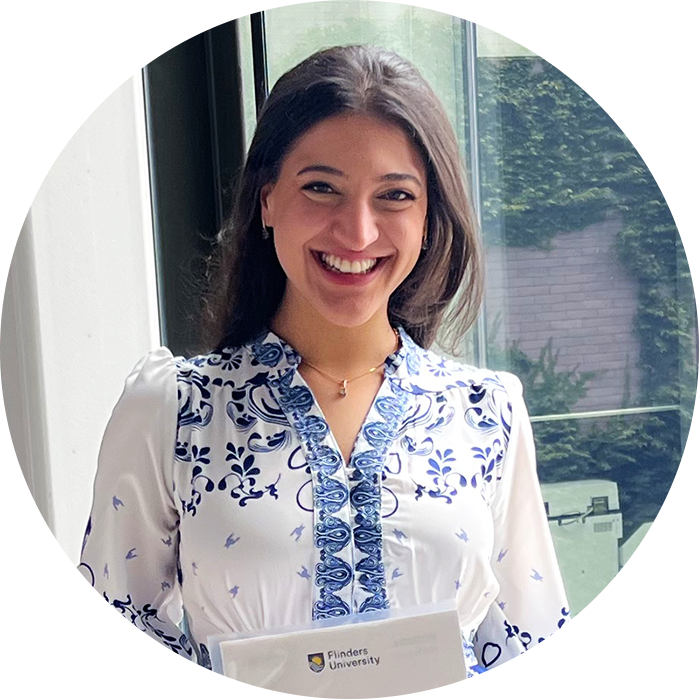
Sara Ataie Ashtiani
Bachelor of Medical Science
“I’m passionate about improving health experiences for people and wanted to study in a field that would give me a good foundation for that passion. The wide variety of topics I undertook at Flinders fuelled my passion for knowledge and problem solving.”
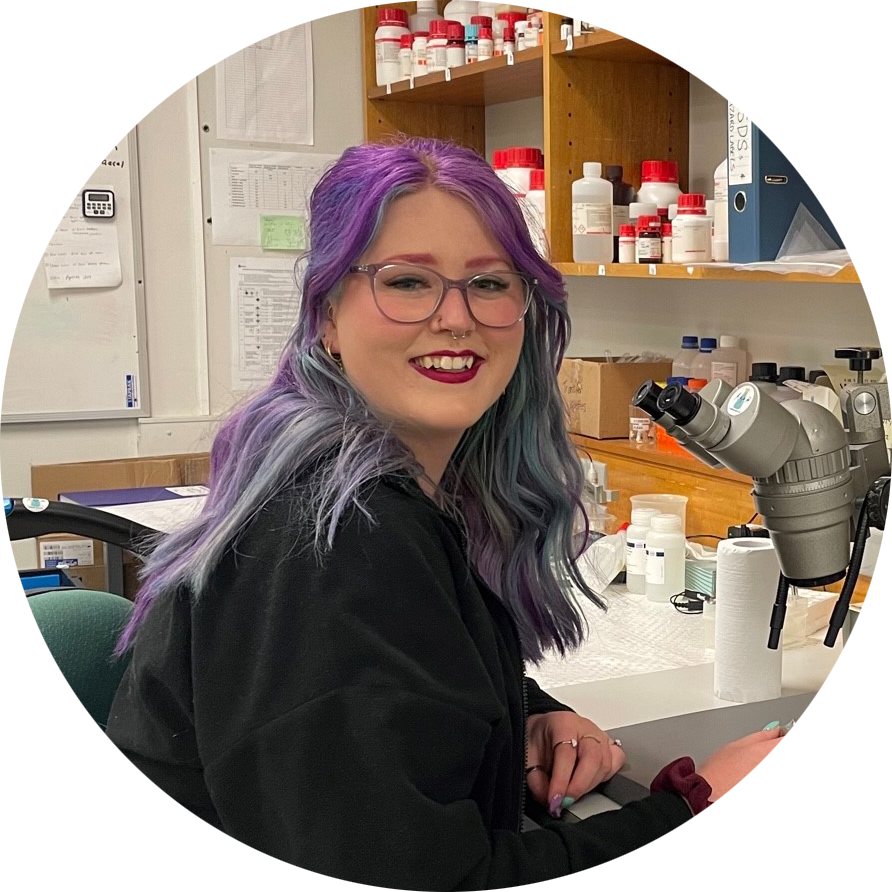
Caitlin Allman
Bachelor of Medical Science
“While many people come into this degree wanting to get into postgraduate medicine, this medical science degree opens a student’s eyes to the work of medical scientists and people often change their end goal from becoming a doctor to becoming a medical scientist.”
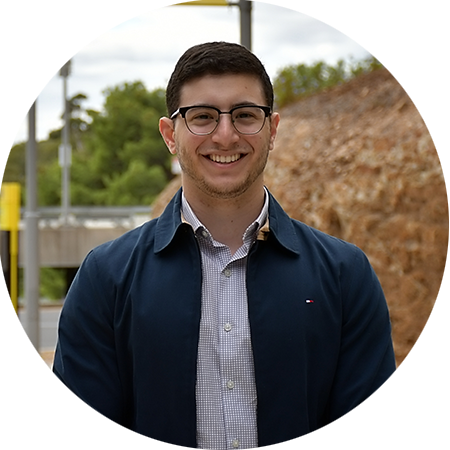
Jason Arsanious
Bachelor of Medical Science
Need support?
International Student Services (ISS) is the first point of contact for international student support. The university also offers everything from cultural, health, and wellbeing services, to academic support.
Campus tours
Take a virtual tour of our campuses, guided by your fellow international students.
FUSA
Flinders University Student Association (FUSA) is the heart of the Flinders Experience. FUSA is where you'll find out about events, club memberships, and extracurricular activities.
Accommodation.
Adelaide has many accommodation options for international students. You can choose to live on campus, at our city accommodation provider The Switch, or in rental accommodation.
Flinders offers a vibrant, fun, supportive uni experience you’ll remember for a lifetime.
Need support?
From cultural, health and wellbeing services, to study and financial support, enrolment advice and more, we’re here to help.
Student clubs
Flinders University Student Association (FUSA) is the heart of the Flinders Experience. FUSA is where you’ll find out about events, club memberships and extracurricular activities.
Campus facilities
Flinders’ campuses are hubs of activity, with retail and food outlets, library spaces, study and chill spaces and more.
Learn from the experts.
Our incredible teaching and professional staff are experts in their fields and well-connected to the industry.
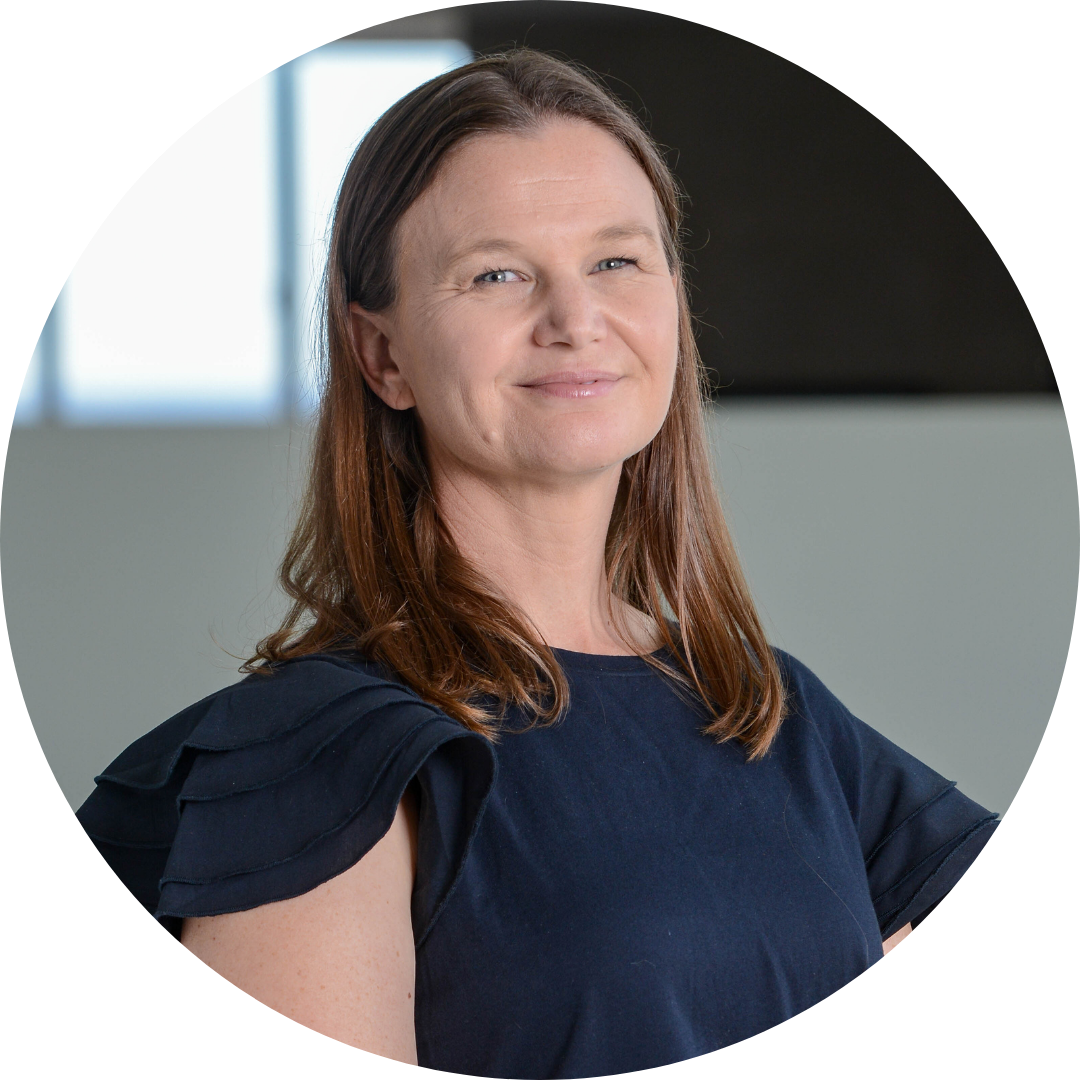
Course Coordinator
Dr Helen Harrison
Helen is a Senior Lecturer and Course Coordinator for the Bachelor of Medical Science programs at Flinders University. A passionate educator and recipient of multiple teaching excellence awards, Helen specialises in human physiology and histology, and is committed to student success through engaging, student-centred learning. She holds a PhD in Comparative Physiology from the University of Adelaide and is a Senior Fellow of the Higher Education Academy (UK).
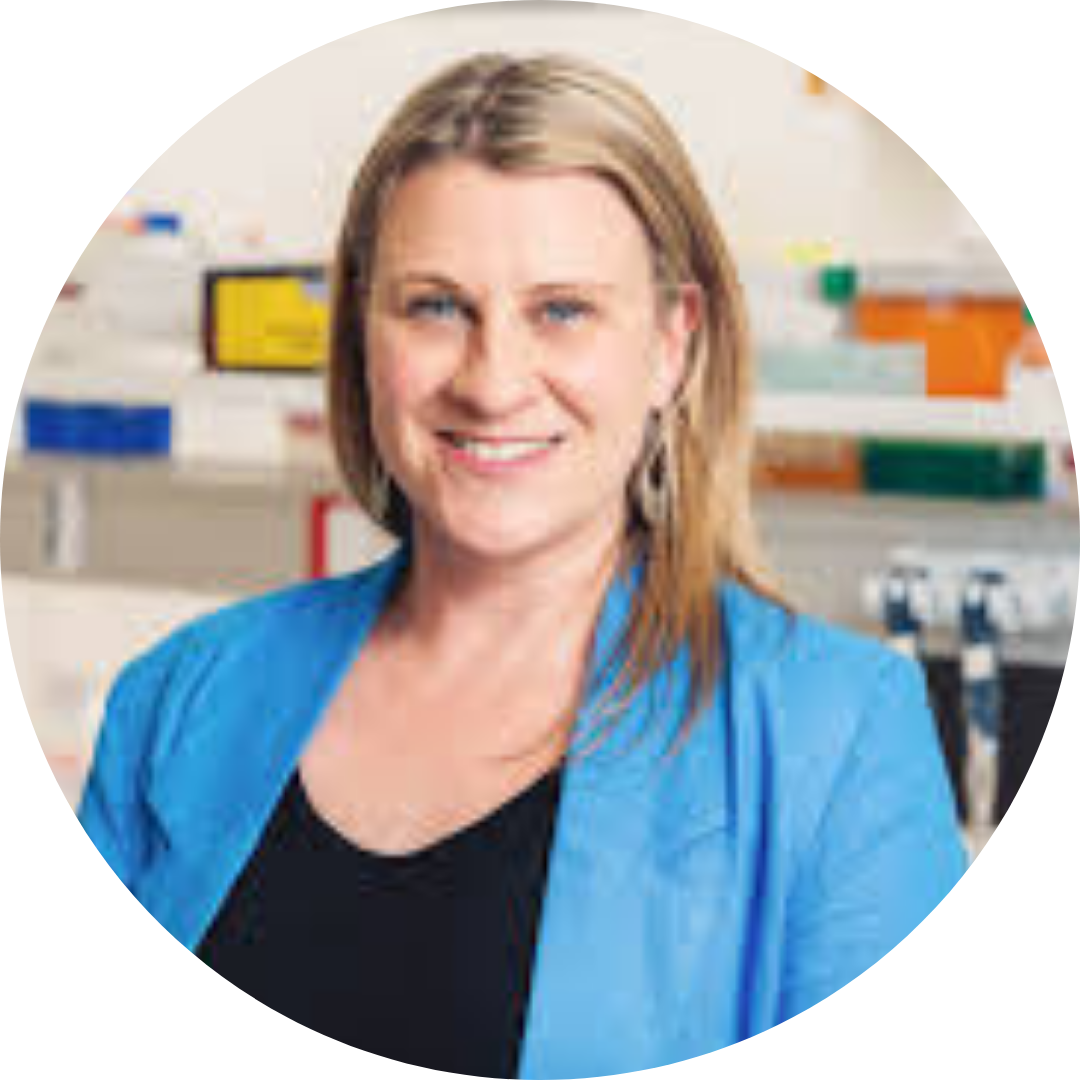
Senior Lecturer
Dr Lauren Thurgood
Lauren is a Senior Lecturer and cancer researcher with expertise in blood cancer, proteomics and cell metabolism. Along with her role as Teaching Program Director, she leads placements for Medical Science, and teaches haematology and transfusion medicine. A Flinders graduate, Lauren has held several competitive research fellowships and grants, including the Beat Cancer Early Career Fellowship, and is an active member of academic senate and the student appeals committee.
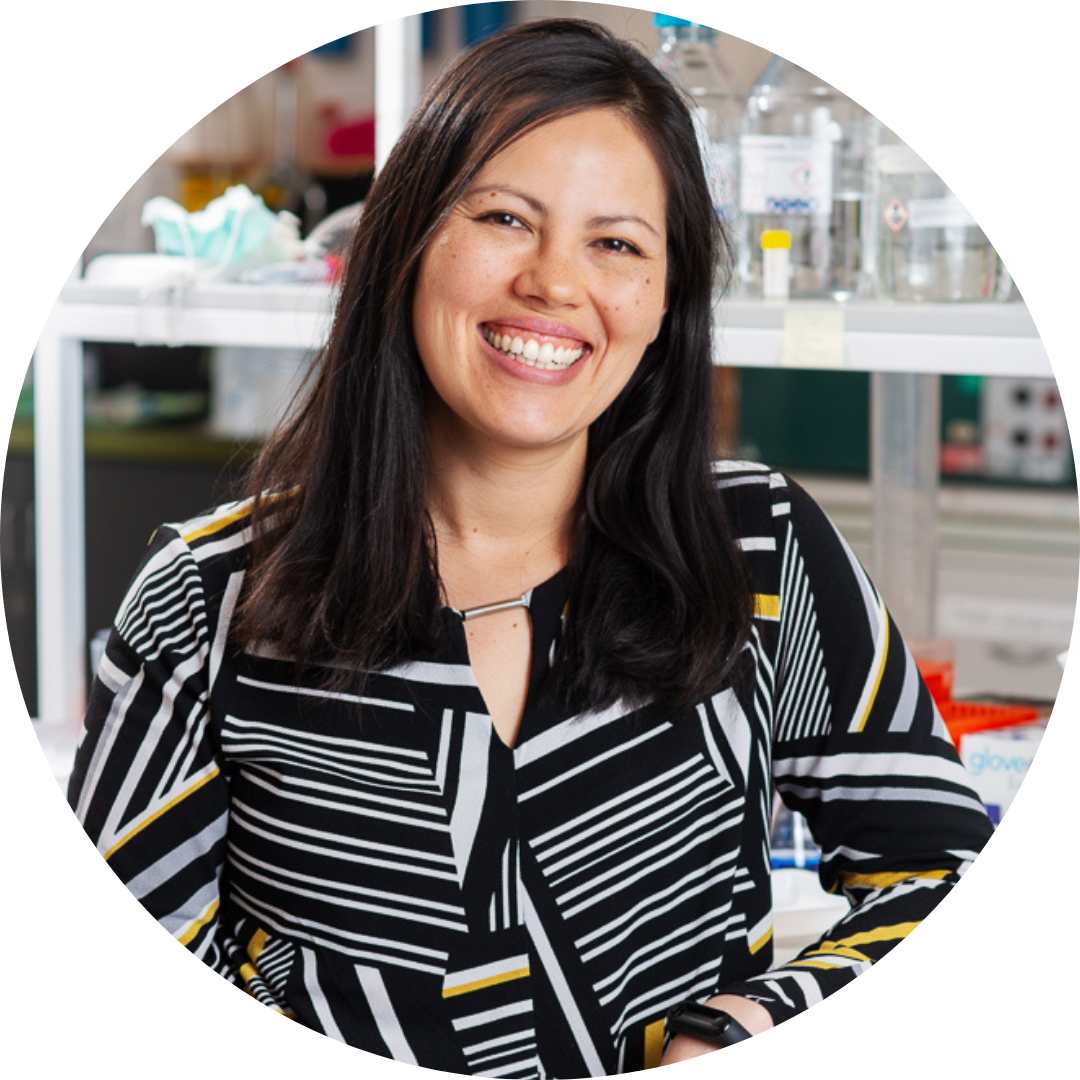
Course Coordinator (Honours)
Dr Amy Wyatt
Amy is a Senior Lecturer in Medical Biochemistry and coordinates the Medical Science (Honours) program. Before her appointment at Flinders, she completed postdoctoral studies at the University of Wollongong and the University of Cambridge, UK. Her research focuses on understanding the relationship between protein misfolding and inflammation, which are common features in various debilitating conditions, including Alzheimer’s disease, atherosclerosis, pre-eclampsia, and arthritis.
Gain real world experience.
The Bachelor of Medical Science offers real-world experience through a third-year professional placement and hands-on lab work, helping you build practical skills that boost your employability.
All Flinders University pre-service teachers must obtain a Working with Children Check (WWCC) from the Department for Human Service (DHS) Screening Unit and a Responding to Risks of Harm, Abuse and Neglect: Education and Care (RRHAN-EC) from a registered provider before undertaking their professional experience placements.
“My third-year placement allowed me to work with a world-class research group in state-of-the-art facilities, where I gained valuable skills and professional connections that will support me in my future career.”
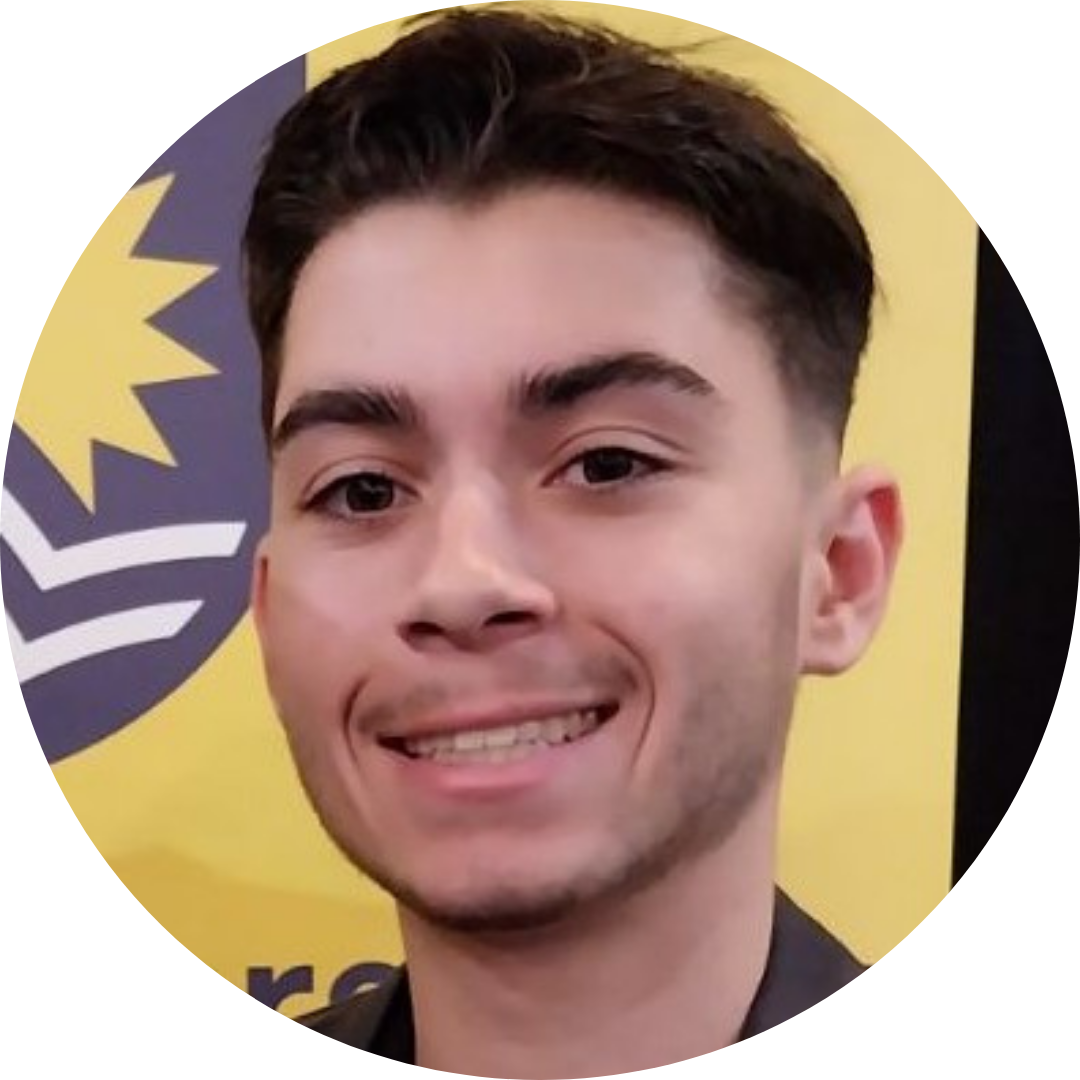
Pasquale Vitaro
Bachelor of Medical Science
How to apply.
We know not everyone begins uni the same way, so we offer a variety of pathways into Flinders.
Use the dropdown to tell us a bit about you.
Alternative pathways
UniTEST
If you’re in Year 12, taking the free uniTEST can help boost your chances of getting into Flinders.
Research Project B Pathway
Strong results in your Research Project B subject along with your Year 12 results can be considered for entry.
Year 12 Grades Entry
By using three of your best Year 12 grades, you can also gain a place in your course of choice.
School Recommendation Program
Your school’s recommendation about your academic performance may be considered as part of your admission.
If you started uni but didn't finish, you may be able to gain entry into Flinders with a higher education transfer.
Higher education transfer
If you’re studying at another university, you may be able to transfer to Flinders based on your Yr 12 results, current GPA or other factors.
If you've had TAFE or VET training, you may be able to continue your study with Flinders.
TAFElink
Even if you didn’t finish high school (Year 12), you may be able to study at Flinders through your TAFE/VET qualification.
Dual offer pathways
You may be able to complete a TAFE SA course and have guaranteed entry into Flinders.
Credit transfer
The TAFE/VET stud you’ve already done may be able to be used as credit towards a Flinders’ course.
No ATAR? No worries. If you've got work or life experience, there are pathways into Flinders.
Flinders Foundation Studies
The Foundation Studies Program is free and guarantees entry to a range of degrees.
Skills for Tertiary Admissions Test (STAT)
The STAT is a 2-hour multiple choice test that assesses your abilities.
Year 12 qualifications
If you completed Year 12 more than two years ago you can still use your results to apply.
Concerned about your ATAR? If it doesn't meet the course requirement, or if you don't receive one, we offer alternative pathways to admission. Contact us to discuss your options—we're here to help.
Increase your chances of studying at Flinders as a rural and remote resident.
An annual sub quota is available for applicants from rural and remote areas. To be considered for the rural and remote subquota you must submit a Statutory Declaration to SATAC within 10 working days of your application confirming you’ve lived in a non-metropolitan area of Australia (Remoteness Classifications RA2–RA5) for:
* At least 5 consecutive years, or
* 10 cumulative years, from birth (i.e. during any period of your life)
Eligibility is based on your primary residential address.
Applicants can check their eligibility in accordance with the definition above using the Australian Government's Health Workforce Locator. Enter the address you wish to search for using the 'ASGS Remoteness Area' '2021'. As part of a transition year for 2026 entry, applicants can also be assessed against the ‘ASGS Remoteness Area’ ‘2016’ if not eligible under the 2021 layer. For 2027 entry, applicants will only be assessed using the 'ASGS Remoteness Area' '2021' layer.
- Entry requirements
- Application options
If you don’t meet our English language entry requirements and need to improve your English language proficiency, you can do so through Flinders University Academy – or our approved English Language Instruction Course for Overseas Students (ELICOS) providers.
This means that you can attend the required English language tuition at approved ELICOS providers and gain direct entry into university without an IELTS or TOEFL test.
If you don’t meet our academic entry requirements, you can still gain entry to Flinders University through Flinders University Academy. With a range of diplomas, foundation and English language courses, students can find a direct pathway into the destination degree of their choice.
How to apply
Select your course.
Check entry requirements.
Check your eligibility for credit.
Obtain certified documents.
Submit your application and documents.
Application options.
Apply online
Follow up our step-by-step guide to help you with your application to study at Flinders.
Find an agent
Our registered education agents around the world understand the university system and will guide you through the application process.
Contact us
Get in touch with our team to discuss your preferences, career options, pathways, and course and entry requirements. We are here to ensure you have everything you need to choose the right degree for you.
Don't meet academic requirements? Don't worry. We'll help you get there.
Preparatory courses
If you lack required English proficiency, improve through Flinders University Academy or approved ELICOS providers for direct university entry without IELTS/TOEFL tests.
Flinders University Academy
If you do not meet entry requirements for your desired degree, Flinders University Academy will provide you with a direct pathway into the destination degree of your choice.
Expand your career options by combining this degree with the Bachelor of Engineering (Biomedical) (Honours)
Flinders combined degree options can help you pursue multiple passions and graduate with two degrees to broaden your career opportunities.
Add on Biomedical Engineering
Combined SATAC code: 224781
Duration: 6 years
Delivery Mode: In person
This degree combines the study of human health and disease with the engineering principles needed to advance healthcare technologies. This 6-year degree equips you with the knowledge and practical skills to design innovative medical solutions, while providing extensive industry experience through integrated work placements.
By studying both Medical Science and Biomedical Engineering, you'll graduate with a competitive edge, prepared for a wide range of career opportunities in the healthcare and engineering sectors.
Frequently asked questions.
Over the years, many questions have been asked by students before. For the quickest answers view our frequently asked questions or browse the full list @ Ask Flinders.
You'll gain strong lab, research, and communication skills through hands-on practicals, placement, and the support of a research-rich environment.
Yes – The degree can be a stepping stone to other health fields, including medicine, allied health, public health, or research, depending on your chosen major and future study.
Yes – The Flinders Medical Science degree offers a direct pathway to the Doctor of Medicine (MD), with a sub-quota of places available for eligible graduates. There are also rural and remote entry pathways for domestic students.
Yes – You can choose from majors including Molecular Medicine, Immunology and Infectious Diseases, Health and Medical Research or Physiology, Neuroscience and Anatomy, and Medical Studies.
Flinders offers a strong research environment. You’ll learn from active scientists and have the option to complete an honours year with your own independent research project.
Flinders offers academic support, wellbeing services, career advice, and mentoring to help you succeed throughout your degree and prepare for life after graduation.
- Applications are completed via SATAC
- Visit: satac.edu.au
The table below shows ATAR and Selection Rank data for students offered a place wholly or partly on the basis of ATAR commencing in Semester 1, 2025. It is limited to applicants that have recently completed secondary education (within the last two years). Data may reflect multiple courses available within a suite of courses.
Notes:
<5 – less than 5 ATAR based offers made
N/A – This course uses additional selection criteria and therefore Selection Rank is not published
| ATAR-based offers only across all offer rounds | ATAR - Excluding adjustment factors | Selection Rank - ATAR plus any adjustment factors |
|---|---|---|
| Highest rank to receive an offer | 95.20 | 99.95 |
| Median rank to receive an offer | 76.17 | 80.42 |
| Lowest rank to receive an offer | 57.75 | 61.00 |
The table below gives an indication of the likely peer cohort for new students in this course. It provides data on students who commenced study in this course in Semester 1, 2025 including those admitted through all offer rounds and international students studying in Australia. Applicant background groupings are based on educational background, not basis of admission. Data may reflect multiple courses available within a suite of courses.
Notes:
<5 – the number of students is less than 5
N/P – Not published: the number is hidden to prevent calculation of numbers in cells with less than 5 students
| Applicant background (Semester 1, 2025) | Number of students | Percentage of all students |
|---|---|---|
| Higher education study (includes a bridging or enabling course) | 44 | 37% |
| Vocational education and training (VET) study | 5 | 4% |
| Work and life experience | <5 | <5 |
| Recent secondary education - Admitted solely on the basis of ATAR (regardless of whether this includes the consideration of adjustment factors such as equity or subject bonus points) | 28 | 24% |
| Recent secondary education - Admitted where both ATAR and additional criteria were considered (e.g. portfolio, audition, extra test) | <5 | <5 |
| Recent secondary education - Admitted on the basis of other criteria only and ATAR was not a factor (e.g. special consideration pathways) | 17 | 14% |
| International Students | 18 | 15% |
| All students | 118 | 100% |
Frequently asked questions.
Get in touch with us to discuss your preferences, career options, pathways and course and entry requirements. We are here to ensure you have everything you need to choose the right degree for you.
The type of documents you will need for your international application depends on what course you are applying for and which country you are a citizen of. Course requirements are stated on each course webpage. Examples of documentation you might expect to provide for your international application include a copy of personal identification, academic transcripts or a resume.
Once you have received your Confirmation of Enrolment (CoE) letter from Flinders University, you should apply for your visa as soon as possible as visa processing times can vary. You will receive your CoE letter after you have applied to study at Flinders, accepted your offer and paid the semester tuition fee.
No. Part-time study is currently not available for international students due to visa conditions.
No. Online study is currently not available for international students due to visa conditions.
If you don’t meet our English language or academic entry requirements, you can still gain entry to Flinders University through our on-campus pathway provider Flinders University Academy. Alternatively, you can improve your English language proficiency through our approved English Language Instruction Course for Overseas Students (ELICOS) providers.
You can apply to study as an international student directly through Flinders University or an authorised agent in your country.
If you are from one of the countries listed, you are required to apply via an education agent. If you reside onshore in Australia, you will not require an agent even if you are from the countries listed above.
Yes. As a student visa (subclass 500) holder, you and your dependents (family members) can work up to 48 hours a fortnight when your course of study is in session. If you have started a master degree by research or doctoral degree, this rule does not apply to you and working hours are not restricted.
Our dedicated International Student Services (ISS) team provide a range of programs supporting your enrolment, study and social life, as well as a referral service to facilities on campus and within the local community.
![]()
Sturt Rd, Bedford Park
South Australia 5042
South Australia | Northern Territory
Global | Online
CRICOS Provider: 00114A TEQSA Provider ID: PRV12097 TEQSA category: Australian University








